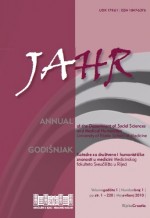Bioethical analysis of the United Nations Declaration on Human Cloning
Keywords:
UN Declaration, human cloning, reproductively, therapeutically, bioethicsAbstract
The author analyzes in his work the process of negotiating and beginning of the United Na-tions Declaration on Human Cloning as well as the paragraphs of the very Declaration. Th e negotiation was originally conceived as a clear bioethical debate that should have led to a general agreement to ban human cloning. However, more often it had been discussed about human rights, cultural, civil and religious diff erences between people and about priorities in case of eventual confl icts between diff erent value systems. In the end, a non-binding Declara-tion on Human Cloning had been adopted, full of numerous conpromises and ambiguous formulations, that relativized the original intention of proposer states. In author’s opinion it would have been better if bioethical discussion and eventual regulations on cloning men-tioned in the following text had been left over to certain professional bodies, and only after the public had been fully informed about it should relevant supranational organizations have taken that into consideration.
Downloads
Published
Issue
Section
License
Authors who publish with this journal agree to the following terms:
- Authors retain copyright and grant the journal right of first publication with the work simultaneously licensed under a Creative Commons Attribution License that allows others to share the work with an acknowledgement of the work's authorship and initial publication in this journal.
- Authors are able to enter into separate, additional contractual arrangements for the non-exclusive distribution of the journal's published version of the work (e.g., post it to an institutional repository or publish it in a book), with an acknowledgement of its initial publication in this journal.
- Authors are permitted and encouraged to post their work online (e.g., in institutional repositories or on their website) prior to and during the submission process, as it can lead to productive exchanges, as well as earlier and greater citation of published work (See The Effect of Open Access).



